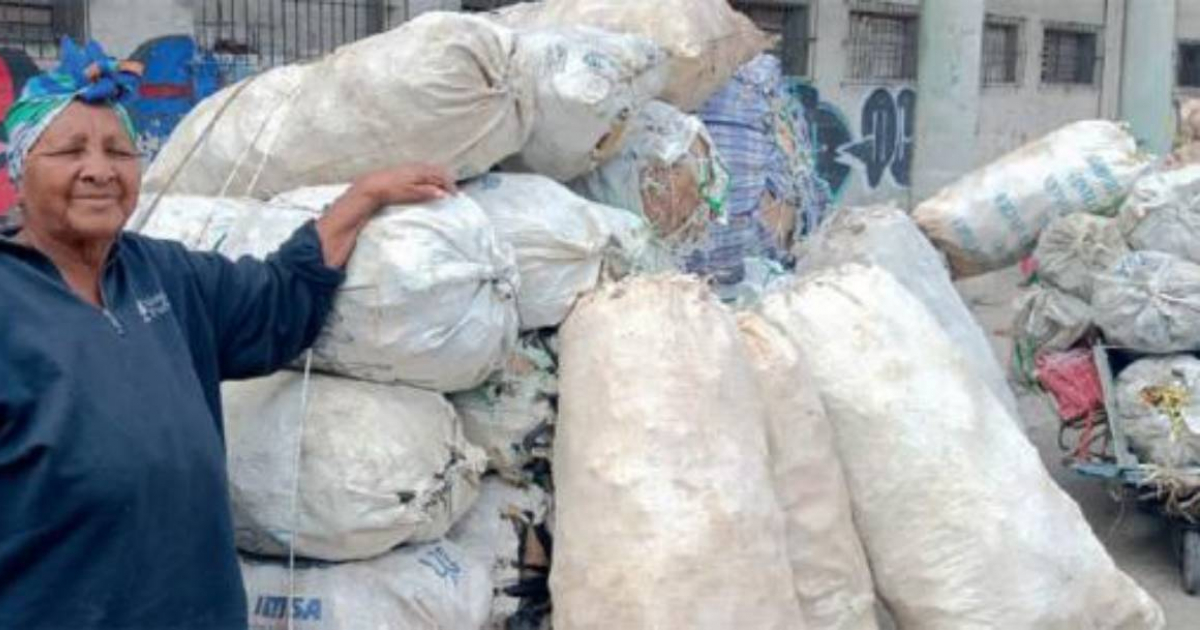
Elderly Cubans draw attention on the streets of Havana as they sift through trash and gather raw materials to raise a little money to help them make ends meet.
The Cuban government devised an initiative known as "Recycle my neighborhood" to which many elderly people have joined. Recycling has become, more than an ecological activity, a daily struggle for survival in the country's capital.
These elderly people, many of them retirees who face severe economic limitations, are forced to collect recyclable materials to sell to the government and supplement their insufficient pensions.
The collection of raw materials takes place twice a week at various points in the capital. The lines to sell merchandise to the regime are a clear reflection of the economic crisis that hits the most vulnerable in Cuban society.
The project began to be implemented at the end of last year.Havana Tribune interviewed some of the elderly who dive in the capital's garbage dumps.
People like Berta Valle, a retiree who collected 40 bags of cans, leave a testimony of the harsh reality that these vulnerable Cubans are facing.
"I collect the empty cans and bring them on Saturdays. I earn up to 6,000 pesos, with that I buy milk and medicine. For me, this is very good," said Valle, who depends on this activity to cover basic needs.
Rosa María Reyes Santiesteban, general director of the Raw Materials Recovery Company (ERMP) of Havana, pointed out that the government "studies and analyzes were carried out that showed that a lot of raw materials are thrown away. From there this strategy of bringing recovery closer to community".
In Havana they produce23,000 cubic meters (m3) of garbage per day, but the Cuban regime only collects 68% of this urban waste.
There is 32%, about 7,600 m3, that remain at street level and that has turned the capital into a focus of health insecurity, with the proliferation of rodents and mosquitoes, carriers of diseases such as dengue and leptospirosis.
Recycling, according to Reyes, contributes to the export economy. "In the first quarter of the year, we have exceededsales and export plans, with important income for the country. So far, about 400 tons of aluminum have been exported, mainly cans."
Beyond the economic benefits that the government is gaining from this task, what stands out is the precarious situation that Cuban retirees face.
The lack of resources pushes them to look for an opportunity to survive in waste. This scenario raises serious questions about the effectiveness of social and economic policies in Cuba, especially when the most affected are those who dedicated their lives to work and now must depend on garbage collection to survive, in a system that has not been able to guarantee a dignified old age for its citizens.
What do you think?
COMMENTFiled in: